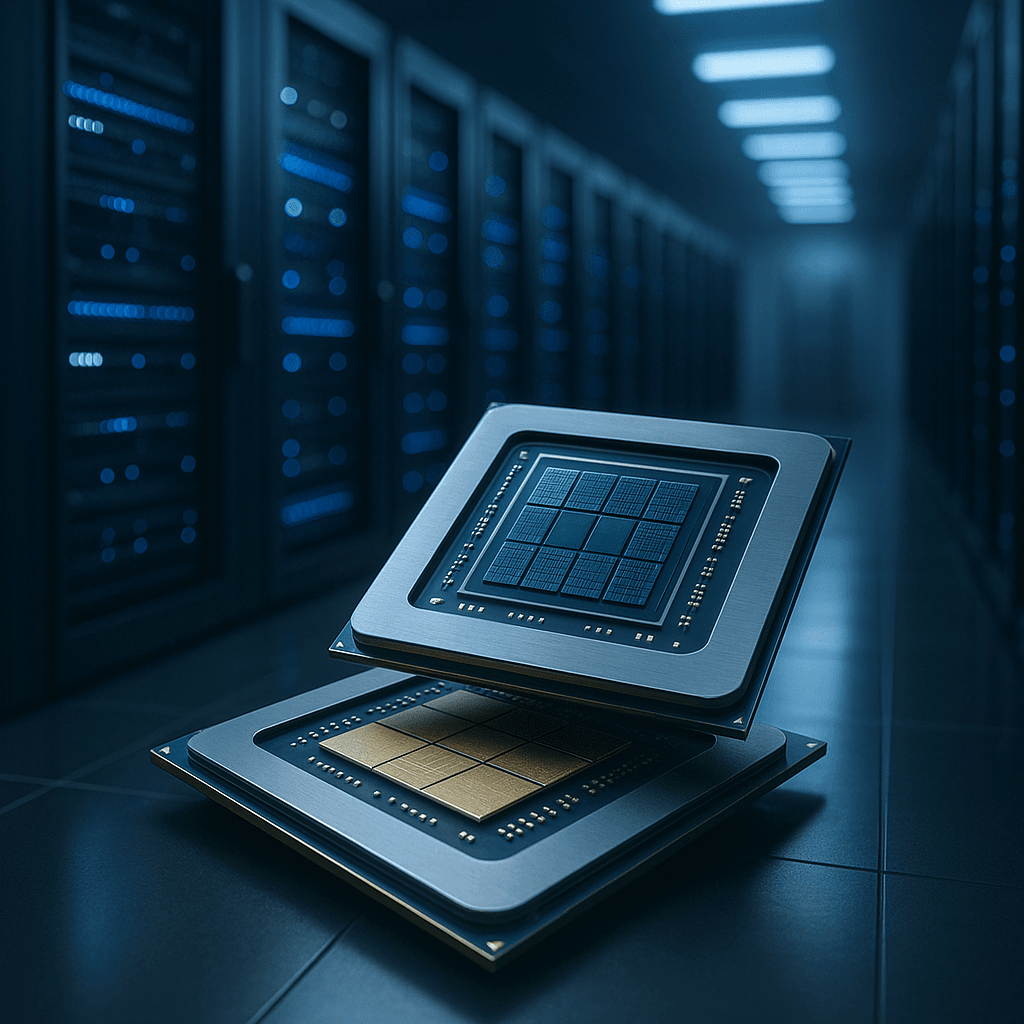Oracle just dropped a bombshell in the AI chip wars. The enterprise giant announced it's deploying 50,000 AMD graphics processors starting in late 2026 - a massive bet that could crack Nvidia's stranglehold on the AI computing market. The news sent Oracle shares down 2% while AMD ticked higher, with investors digesting what this means for the $90 billion AI chip battleground.
Oracle is making its biggest AI infrastructure bet yet, and it's not with Nvidia. The enterprise software giant announced Tuesday it will deploy 50,000 AMD Instinct MI450 graphics processors starting in the second half of 2026, marking one of the largest single orders for AMD's AI chips to date and a direct challenge to Nvidia's market dominance.
The immediate market reaction tells the story - Oracle shares dropped 2% as investors questioned the timing and scale of the commitment, while AMD stock ticked higher. Nvidia fell more than 3%, reflecting growing concern about increased competition in the AI chip space where it commands over 90% market share.
"We feel like customers are going to take up AMD very, very well - especially in the inferencing space," Karan Batta, senior vice president of Oracle Cloud Infrastructure, told CNBC. The comment signals Oracle's confidence that enterprises are ready to move beyond Nvidia's ecosystem for AI workloads.
The timing isn't coincidental. This AMD commitment comes just weeks after Oracle signed a five-year cloud deal with OpenAI potentially worth $300 billion. Earlier this month, OpenAI itself announced a separate deal with AMD for processors requiring 6 gigawatts of power, with deployment starting in 2026. If that partnership succeeds, OpenAI could end up owning 160 million AMD shares - roughly 10% of the company.
Oracle's choice of AMD's Instinct MI450 chips is particularly significant. These processors, announced earlier this year with OpenAI CEO Sam Altman appearing alongside AMD CEO Lisa Su, represent AMD's first AI chips capable of being assembled into rack-sized systems. The architecture allows 72 chips to function as one unified system - critical for training and deploying the most advanced AI algorithms that power services like ChatGPT.












